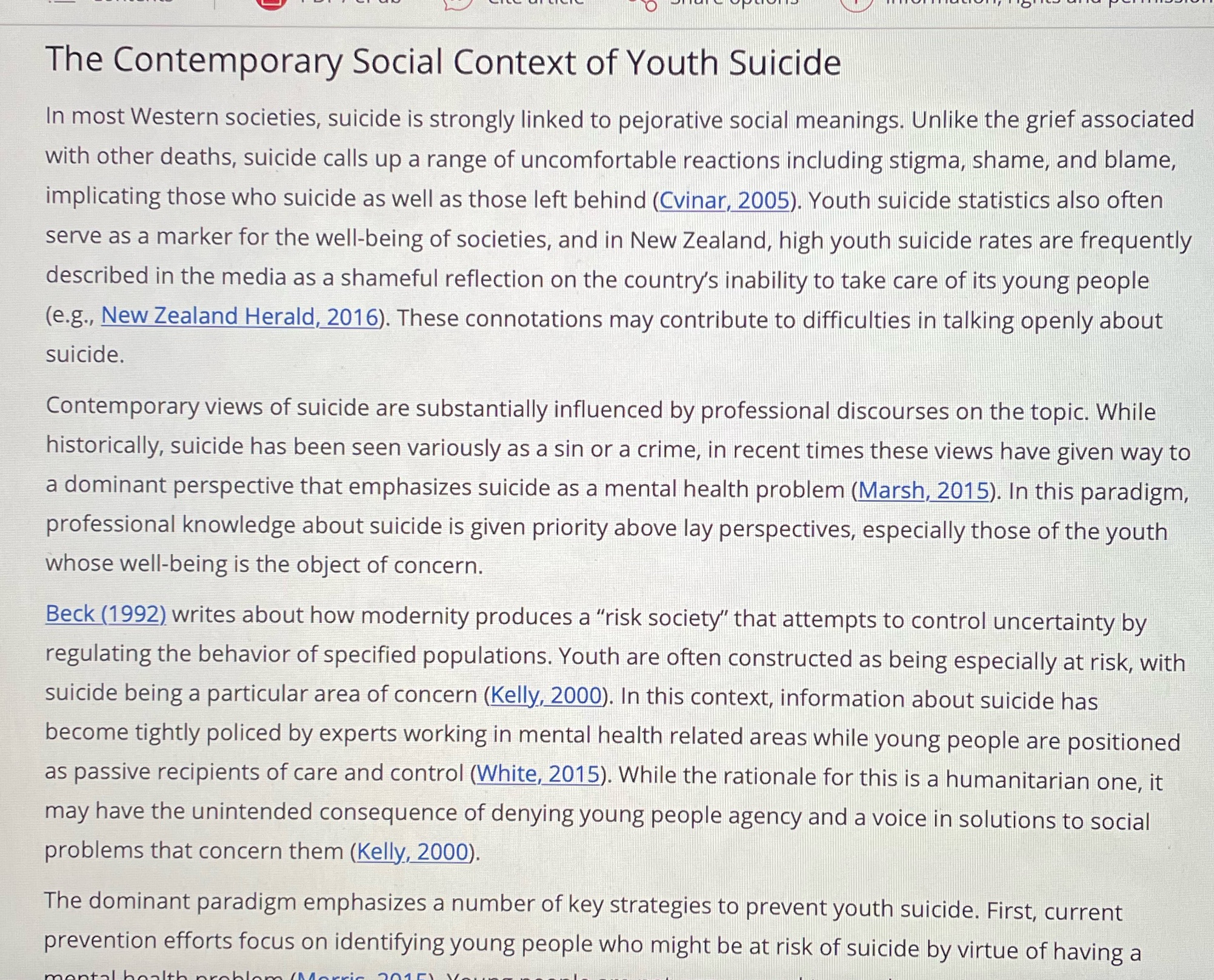Answered step by step
Verified Expert Solution
Question
1 Approved Answer
Summarize the article The Contemporary Social Context of Youth Suicide In most Western societies, suicide is strongly linked to pejorative social meanings. Unlike the grief
Summarize the article

The Contemporary Social Context of Youth Suicide In most Western societies, suicide is strongly linked to pejorative social meanings. Unlike the grief associated with other deaths, suicide calls up a range of uncomfortable reactions including stigma, shame, and blame, implicating those who suicide as well as those left behind (Cvinar, 2005). Youth suicide statistics also often serve as a marker for the well-being of societies, and in New Zealand, high youth suicide rates are frequently described in the media as a shameful reflection on the country's inability to take care of its young people (e.g., New Zealand Herald, 2016). These connotations may contribute to difficulties in talking openly about suicide. Contemporary views of suicide are substantially influenced by professional discourses on the topic. While historically, suicide has been seen variously as a sin or a crime, in recent times these views have given way to a dominant perspective that emphasizes suicide as a mental health problem (Marsh, 2015). In this paradigm, professional knowledge about suicide is given priority above lay perspectives, especially those of the youth whose well-being is the object of concern. Beck (1992) writes about how modernity produces a "risk society" that attempts to control uncertainty by regulating the behavior of specified populations. Youth are often constructed as being especially at risk, with suicide being a particular area of concern (Kelly, 2000). In this context, information about suicide has become tightly policed by experts working in mental health related areas while young people are positioned as passive recipients of care and control (White, 2015). While the rationale for this is a humanitarian one, it may have the unintended consequence of denying young people agency and a voice in solutions to social problems that concern them (Kelly, 2000). The dominant paradigm emphasizes a number of key strategies to prevent youth suicide. First, current prevention efforts focus on identifying young people who might be at risk of suicide by virtue of having a mental health problem (Morris 2015 V
Step by Step Solution
★★★★★
3.32 Rating (143 Votes )
There are 3 Steps involved in it
Step: 1
Answer Here is a summary of the key points from the article The article discusses the contemporary s...
Get Instant Access to Expert-Tailored Solutions
See step-by-step solutions with expert insights and AI powered tools for academic success
Step: 2

Step: 3

Ace Your Homework with AI
Get the answers you need in no time with our AI-driven, step-by-step assistance
Get Started


